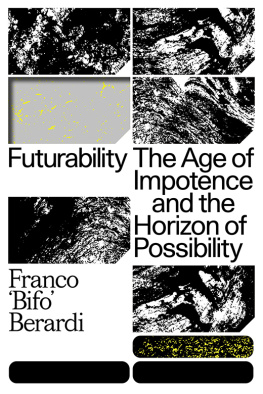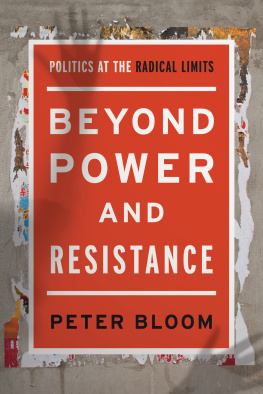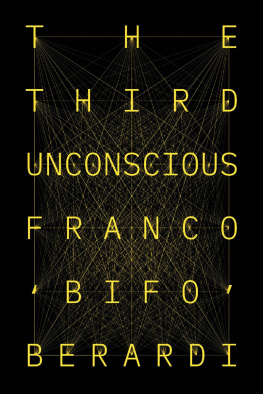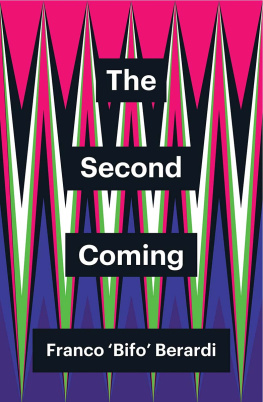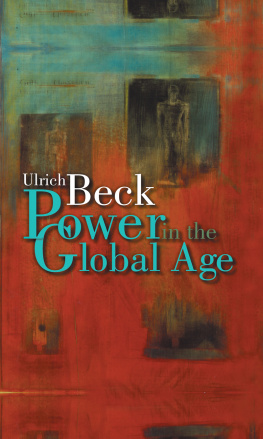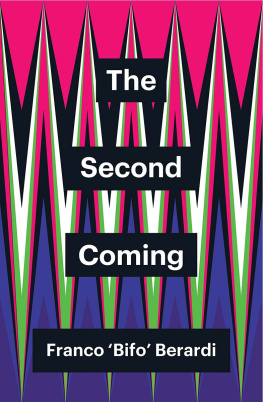To Juha Varto, Tere Vadn, Axeli Virtanen, and Geert Lovink, albeit with a certain delay
Im not going to write about the future, again.
Im not going to write about no-future, either.
Ill write about the process of becoming other: vibration, selection, recombination, recomposition.
Possibility is content, potency is energy, and power is form.
I call possibility a content inscribed in the present constitution of the world (that is, the immanence of possibilities). Possibility is not one, it is always plural: the possibilities inscribed in the present composition of the world are not infinite, but many. The field of possibility is not infinite because the possible is limited by the inscribed impossibilities of the present. Nevertheless, it is plural, a field of bifurcations. When facing an alternative between different possibilities, the organism enters into vibration, then proceeds making a choice that corresponds to its potency.
I call potency the subjective energy that deploys the possibilities and actualizes them. Potency is the energy that transforms the possibilities into actualities.
I call power the selections (and the exclusions) that are implied in the structure of the present as a prescription: power is the selection and enforcement of one possibility among many, and simultaneously it is the exclusion (and invisibilization) of many other possibilities.
This selection can be described as gestalt (structuring form), and it acts as a paradigm. It may also be seen as a format, a model that we can implement only by complying with the code.
Possibility
In 1937 Henri Bergson published the article Le possible et le rel (The Possible and the Real) in the Swedish magazine Nordisk Tidskrift. In this text, later included in the book La pense et le mouvant, the French thinker answers the question: what is the meaning of the word possibility?
We call possible what is not impossible: obviously, this non-impossibility is the condition of its actualisation. But this possibility is not a degree of virtuality, is not ideal pre-existence From this negative sense, we shift unconsciously to the positive sense of the word. In the first definition, possibility means absence of hindrance; but we are shifting now to the meaning: pre-existence in the form of an idea.
B is possible means that B is inscribed in A and nothing is preventing B from deploying from the present condition of A. Bergson speaks of pre-existence in the form of an idea, but I dont want to use the word idea, preferring to say that a future state of being is possible when it is immanent or inscribed in the present constitution of the world. However, we should not forget that the present constitution of the world contains many different (conflicting) possibilities, not only one.
Extracting and implementing one of the many immanent futurabilities: this is the shift from possible to real. Futurability is a layer of possibility that may or may not develop into actuality.
Bergson writes:
Why is the Universe ordered? How can the rule impose itself on the irregularity, how can form impose itself on matter? This problem vanishes as soon as we understand that the idea of disorder has sense in the sphere of human industry, in the sphere of fabrication, not in the field of creation. Disorder is simply an order that we do not seek.
We stare at the chaotic intricacy of matter, of events, of flows, and seek for a possibility of order, a possible organization of chaotic material. We extract fragments from the magma then try to combine them, in an attempt to reverse entropy: intelligent life is this process of local, provisional reversal of entropy. Time is the dimension of decay and resistance, of dissolution and of recomposition. Time is the process of becoming other of every fragment in every other fragment, forever. Bergson defines the concept of possibility from the point of view of time: Why does reality unfurl? How is it not unfurled? What purpose does time serve (I speak here of real, concrete time, and not of abstract time which is merely the fourth dimension of space)? Doesnt the existence of time prove the indeterminacy of things? Isnt time this very indeterminacy?
The old philosophy, he says, was centred on Eternity: Immutable Categories of Being, Eternal Conjunction of Thought and Idea.
The moderns place themselves on a different ground. They do not treat time anymore as an intruder, a perturbation of Eternity. But they would like to reduce time to a mere appearance. The temporary is for them a confusion of Reason Lets forget about theories, lets stick to the facts. They do not treat time anymore as an intruder, a perturbation of Eternity.
In the first place, Bergson defines the possible in a tautological way: possible is that which is not impossible. Possible is that which is not necessarily going to exist, and simultaneously is not necessarily going to be non-existing. In the second place, Bergson acknowledges this answer is an empty one; it says nothing about the content of the possibility itself. If we want to know more we have to understand what is happening in the empty space of non-impossibility and non-necessity.
Lets look at the evolution of a living organism. The field of possibility of the organism is included in its genetic code, but the code is not the history of the future. It rather opens a range of possible evolutions, and in this range many different pathways can be taken. Epigenesis (the process by which an organism develops out of its genetic code) constantly exposes the emerging organism to the environment, to the events occurring that the code cannot predict or preform. This field of possibility is not infinite, because it is limited by the genetic conditions inscribed in the code. But it is by no means reducible to merely a deterministic succession of predictable states. As the possible is plural, the environmental events in which the code develops select and shape one form among many.
Possibility is as the intensity of the tantric egg, before and during the process of differentiation: What Spinoza calls singular essence, it seems to me, is an intensive quality, as if each one of us were defined by a kind of complex of intensities which refers to her/his essence, and also of relations which regulate the extended parts, the extensive parts.
In A Thousand Plateaus, the passage from possibility to actuality is described as a shift from the intensity of the egg to the deployment of gradients of differentiation, and finally to the full deployment of the extended body.

